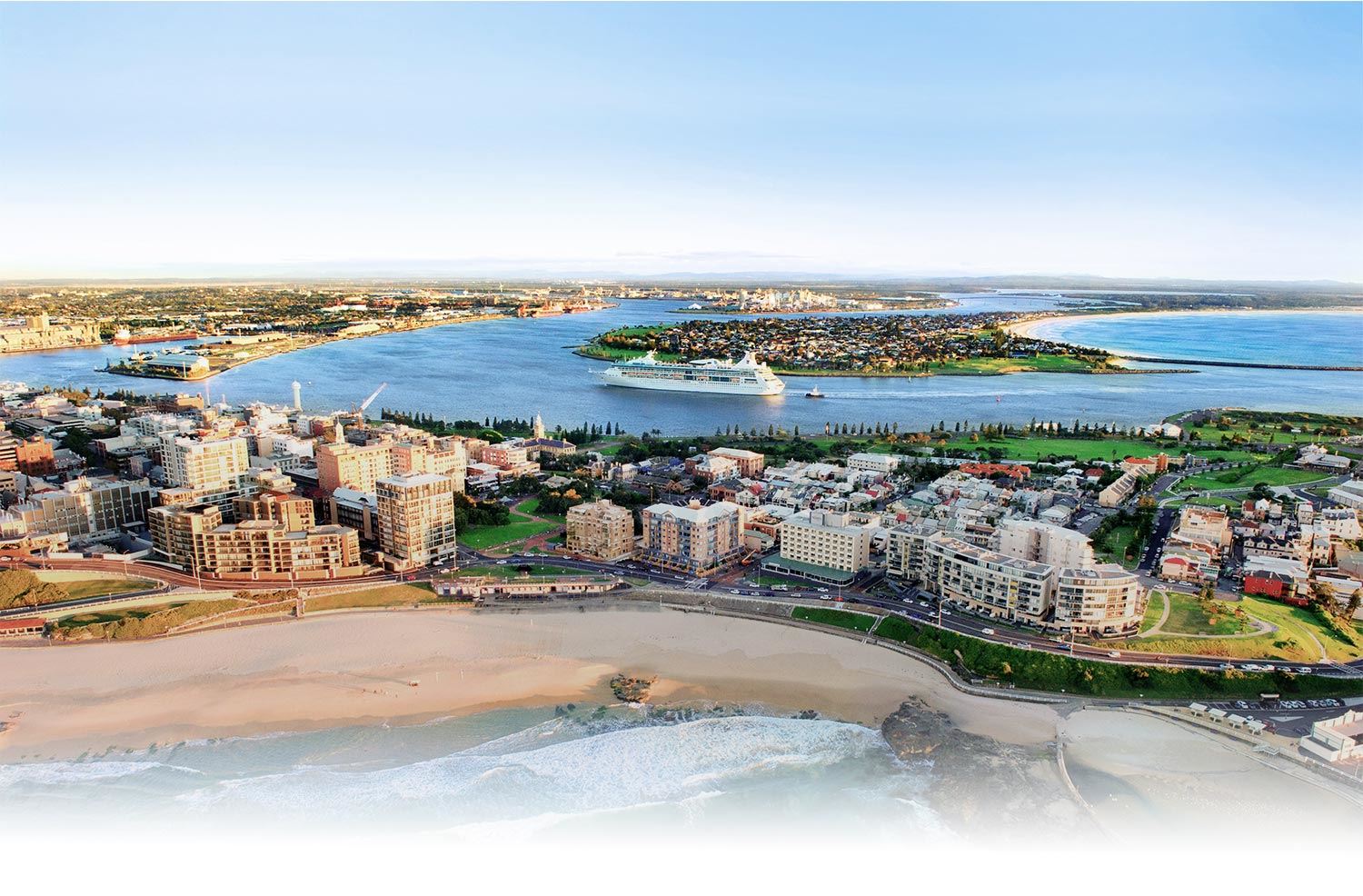
City’s 2019/20 financials confirm record infrastructure investment and impacts of COVID-19
20 Oct 2020
City of Newcastle’s confirmed 2019/20 financials show it delivered a record investment in capital works of $92.5 million while running the first deficit in seven years of $3.6 million due to the impacts of COVID-19.
The financial statements show the City remains in a strong financial position with net assets of $1.72 billion and total cash reserves of $353 million, including unrestricted reserves of $22.6 million.
The Audit Office of NSW’s assessment has shown the City outperformed in all audited financial key performance ratios for 2019/20 reflecting the high standards of governance of the City’s finances, including oversight by the independent Audit and Risk Committee.
Acting CEO Ken Liddell said the latest financial statements demonstrate City of Newcastle’s capacity to respond to rising service expectations and unforeseen events.
“The prudent financial management of City of Newcastle means we have weathered the impacts of COVID-19 well and are in a position to deliver a stimulus budget for 2020/21 from existing reserves, without borrowing money.
“Because of our robust financial position, City of Newcastle was able to respond quickly to the social and economic disruption of COVID-19 including a $5 million community and economic resilience package and additional community infrastructure investment to support 700 local jobs.
“The total financial impact of COVID-19 reduced City of Newcastle’s operating position for 2019/20 by $9.9 million, including a reduction in user charges of $5 million, interest revenue of $2.9 million and additional expenditure of $2 million.
“Despite this impact, the City delivered a net operating deficit of just $3.6 million, less than the forecast deficit predicted in March of $8.3 million.
“The fact City of Newcastle has produced net operating surpluses for the last six financial years reflects a positive pattern of financial performance and a commitment to long-term financial sustainability.
“The Audit Office’s assessment of City of Newcastle’s financial statement shows a clean bill of health across all performance ratios which is further evidence of the City’s strong financial management.
“When it comes to major economic downturns through global crises such as COVID-19, governments at all levels have a responsibility to accelerate investment to both keep people employed and uplift economic activity.
“We have continued to deliver high-quality services and projects in a financially responsible way.”
The City of Newcastle delivered a record investment in works across the Local Government Area in 2019/20, including:
- $16.6 million on waste management, incorporating the expansion of Cell 9 at the Summerhill Waste Management Centre
- $14.1 million on infrastructure and property investment including the newly opened Local Emergency Operations Centre
- $9.9 million on renewal and maintenance of the City’s roads
- $7.8 million on renewal and maintenance of the City’s stormwater network
- $7.6 million for fleet renewal
- $6.5 million on IT modernisation
- $5 million on Smart City initiatives including the city’s large-scale solar farm
- $3.7 million for City Hall façade upgrades and the new Visitor Information Centre
- $3.5 million on parks, facilities and open space including the playground replacement program
- $2.4 million on Libraries including the new Digital Library.
Meanwhile, City of Newcastle is bringing its method of calculating infrastructure in need of renewal in line with best practice to ensure ratepayers’ money is spent where it is needed most.
All NSW councils are required to estimate the total cost of bringing existing assets up to a satisfactory standard, however the methods for calculating this cost vary and the results are not audited by the Audit Office of NSW unlike other financial key performance ratios.
The condition of the City’s roads, stormwater drainage, footpaths, bridges, buildings and recreational assets are measured against an Office of Local Government (OLG) five-point scale, which rates infrastructure condition from excellent, to very poor.
Following a change to the Local Government Code of Accounting Practice, City of Newcastle now considers assets rated 3 out of 5 on the OLG key to be satisfactory and therefore these assets are no longer included as infrastructure in need of renewal, also known as a ‘backlog’.
City of Newcastle Interim Chief Financial Officer Scott Moore said other leading NSW councils, including City of Sydney, factor in assets rated in poor and very poor condition when calculating their ratio whereas City of Newcastle previously also included assets rated as satisfactory.
“Allocating personnel and expenditure to renew infrastructure in satisfactory condition takes away from City of Newcastle’s ability to deliver a works program that meets the community’s needs,” Mr Moore said.
“Infrastructure rated as satisfactory is fit for purpose and therefore does not need replacing.
“By using this best practice model, we are freeing up funds to be used where they deliver the best value for our community, including key renewal projects such as the Newcastle Ocean Baths.
“Our infrastructure in need of renewal is calculated at only $37 million using this best practice OLG method, which is much more accurate than the $126 million recorded last year as it also including $101 million related to assets rated as satisfactory.













